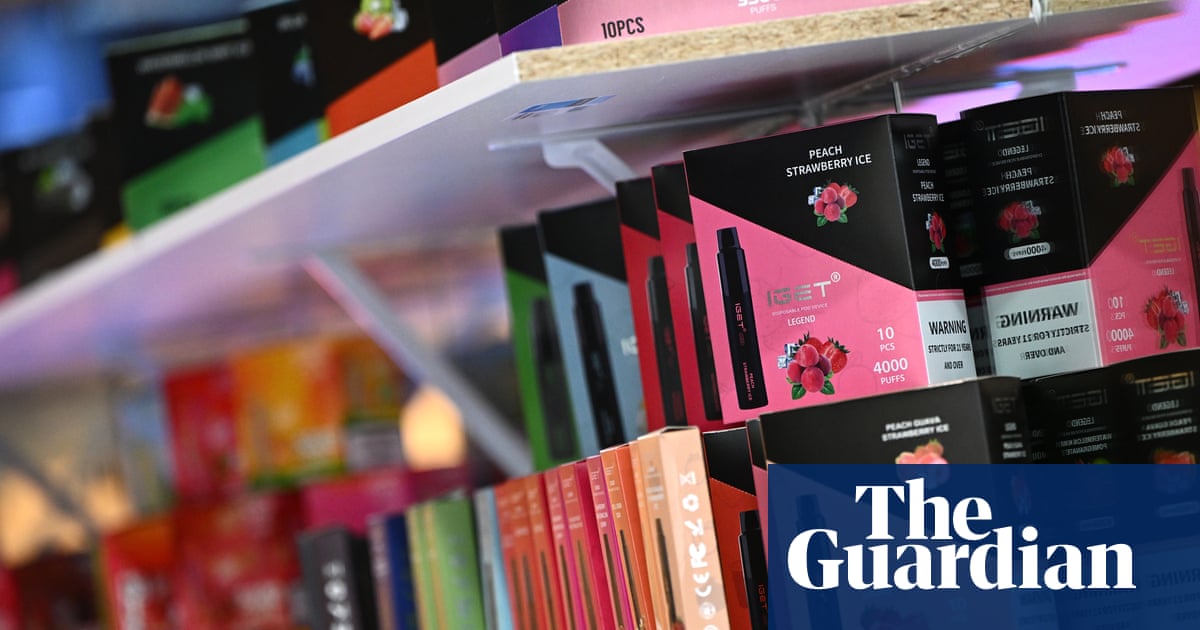Australia is now waging a “de facto war on nicotine” that is doomed to fail in the same way as previous prohibition-style policies, experts say, amid a growing debate about how to respond toan explosion in the illicit tobacco trade.
As health experts warn against changes that would undermine decades of fighting to bring down smoking rates, James Martin, a criminology lecturer at Deakin University, and Edward Jegasothy, an epidemiologist at the University of Sydney’s School of PublicHealth, have called for a major overhaul in how we tax tobacco and regulate vaping products.
They argue thatunaffordable legal cigarettesand an effective ban on retail e-cigarette sales are responsible for the explosion in black market trade for both products.
“Australia’s current strategy may be creating more harm than it mitigates, mirroring many of the unintended consequences historically associated with drug prohibition,” Martin and Jegasothy wrote recently inHarm Reduction Journal.
Plain packaging, health warnings, restrictions on how smokes are displayed, and education about the dangers of cigarettes have all helped lower smoking rates in recent decades.
The gains were hard-fought, particularly against fierce opposition from thetobacco industry, and have garnered global praise.
The treasurer, Jim Chalmers, and health minister, Mark Butler, havedismissed calls from the statesto lower the tobacco excise, insisting that greater enforcement, rather than cheaper cigarettes, is the answer to squashing the illicit trade.
Sign up for Guardian Australia’s breaking news email
But with Australian cigarettes the most expensive in the world and crime associated with illicit tobacco and vapes rising, Martin said that Australian health authorities should move towards a “harm reduction” approach.
Such an approach would include removing the tobacco excise for a period, and making vapes more available as a recognised smoking cessation tool, alongside other demand-focused policies such as more investment in education.
“Look at the war on drugs; there is something worse than the tobacco industry, and that’s the black market,” Martin said.
Between 2019 and 2023, Australia experienced its steepest drop in smoking rates in the past 30 years, with the share of adults smoking falling from 11.6% to 8.8%.
Martin said it was no coincidence that these years were also when more people were using e-cigarettes.
“Vaping isn’t risk-free, but we need to consider its risk vis-a-vis the risks of smoking,” he said. “Here we have a harm reduction product that many smokers prefer.”
Sign up toBreaking News Australia
Get the most important news as it breaks
after newsletter promotion
But the University of Sydney’s Becky Freeman, one of the country’s leading experts on tobacco control, said she has been frustrated by those calling for radical changes despite a lack of up-to-date and reliable data.
“We want to make sure the growth in the illicit trade isn’t undermining tobacco control,” Freeman said. “If we see any increases in smoking that would be very alarming.
“Freezing tobacco taxes at the moment makes sense – until we get enforcement sorted out there’s no point in putting in extra taxes. But that’s quite different from rolling it back.”
Freeman said that limiting sales of nicotine vapes to pharmacies was “not a big ask for a product that is highly addictive and dangerous”.
“They are not a consumer good,” she said. “We made this mistake with tobacco products, why would we turn around and do the same thing with vapes?”
Freeman said youth vaping rates in Australia were lower than in New Zealand, the UK and Canada, which allow the retail sale of e-cigarettes, and that new licensing requirements for tobacconists in New South Wales and Victoria were “long overdue”.
“We have done an excellent job on demand reduction,” she said. “We haven’t controlled supply that well at all.”
